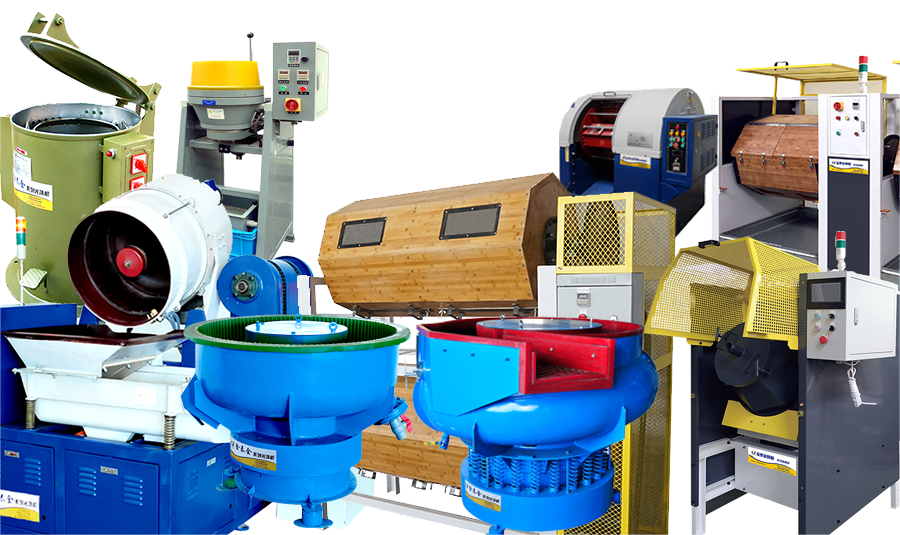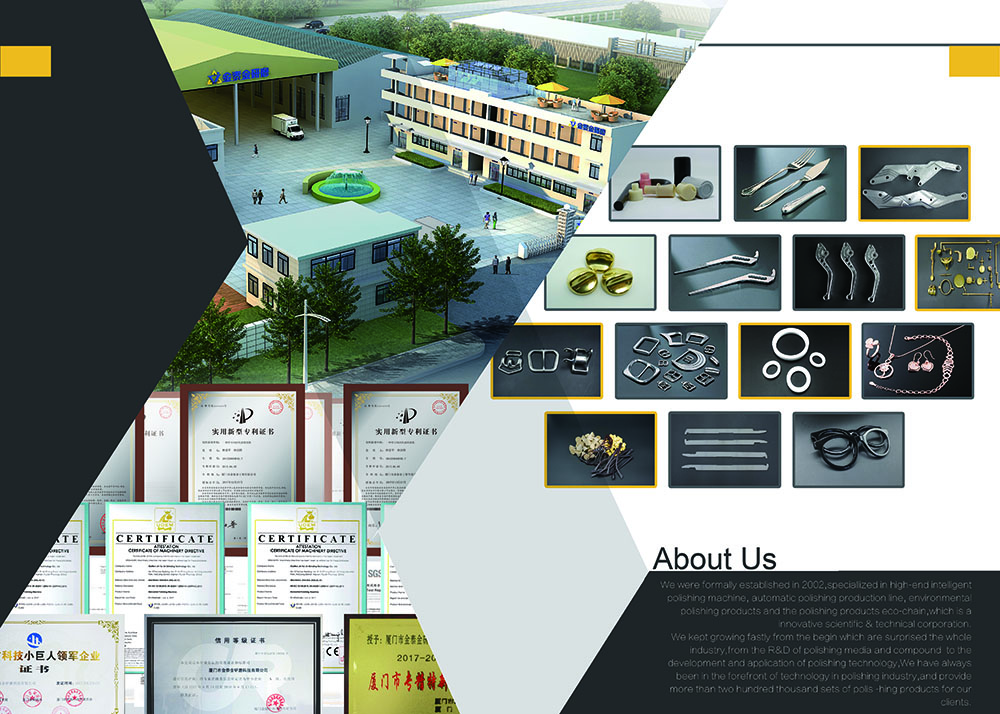Introduction:
In the rapidly evolving landscape of the metal industry, the transition from traditional manual polishing to advanced mechanical polishing is not just a matter of technological advancement, but a crucial step towards ensuring safety, environmental protection, energy efficiency, and cost reduction. This shift is imperative as the industry seeks to align with global standards for occupational health and safety, as well as environmental sustainability.
Manual polishing, once the backbone of the metal finishing process, has been associated with various health risks due to the exposure to harmful chemicals and dust particles. The labor-intensive nature of the process also contributes to inconsistent quality and inefficiency. In contrast, mechanical polishing, with its precision and automation, offers a safer, cleaner, and more efficient alternative.
JintaiJin Polishing Company, with over two decades of specialization in the polishing industry, stands at the forefront of this transformation. The company's commitment to innovation is evident in its advocacy for the adoption of high-end intelligent polishing machines and automatic polishing production lines. These advanced solutions not only enhance the quality of the finished products but also significantly reduce the environmental footprint of the polishing process.
By integrating cutting-edge technology into their operations, JintaiJin Polishing Company is setting a new standard in the industry. The use of intelligent polishing machines ensures consistent quality, while automatic polishing production lines increase throughput and reduce labor costs. Moreover, the focus on environmental polishing products reflects the company's dedication to sustainable practices.
In conclusion, the transition from manual to mechanical polishing in the metal industry is a critical step towards a safer, more efficient, and environmentally friendly future. JintaiJin Polishing Company's leadership in this area demonstrates its commitment to excellence and innovation, paving the way for a new era in metal finishing.
The Perils of Traditional Manual Polishing:
The traditional approach to polishing metal products, especially those that require high-quality finishes like stainless steel kitchenware, has predominantly been manual. This labor-intensive process involves the use of abrasive materials to achieve a smooth metal surface. However, this method is fraught with significant health hazards. Workers are often in close proximity to the polishing materials, which exposes them to the risk of inhaling dust and coming into contact with harmful chemicals. This can lead to a range of respiratory issues and other health risks. The manual polishing process is not only detrimental to the health of the workers but also has a profound environmental impact. The use of chemical solutions and the generation of dust contribute to air and water pollution, raising concerns about the sustainability of this traditional method. The need for a safer and more environmentally friendly approach to metal polishing is evident, prompting a shift towards more advanced and automated techniques.
The Advantages of Mechanical Polishing:
Mechanical polishing, particularly when employing automatic machines like the 120L vibratory polishing bowl from JintaiJin, offers a significant departure from traditional manual methods. These advanced machines are capable of polishing up to 500 pieces per day, a substantial increase from the manual rate of just 100 pieces. The only inputs required for these machines are energy and polishing materials, making the process more efficient and cost-effective.
The automation of the polishing process is one of the key advantages of mechanical polishing. It not only boosts productivity but also reduces the need for manual labor, thereby minimizing human exposure to harmful substances. This is a crucial factor in enhancing workplace safety and reducing health risks associated with traditional manual polishing, where workers are often in close contact with abrasive materials and chemical solutions.
Furthermore, mechanical polishing significantly reduces environmental pollution. The closed systems of automatic polishing machines prevent the release of dust and pollutants into the air, contributing to a cleaner and safer environment. This is in stark contrast to manual polishing, which can result in significant air and water pollution due to the use of chemical solutions and the generation of dust.
In addition to safety and environmental benefits, mechanical polishing also offers superior consistency and quality in the finish of the products. The precision and control afforded by automatic machines ensure a uniform and high-quality finish on every piece, which is often challenging to achieve with manual polishing.
Overall, the advantages of mechanical polishing are clear. It offers a safer, more efficient, and environmentally friendly alternative to traditional manual methods, while also providing superior quality and consistency in the finished products.
Cost Analysis:
The shift towards mechanical polishing not only brings about improvements in safety and environmental sustainability but also offers significant economic advantages. To understand the cost implications, let's analyze a scenario comparing traditional manual polishing with modern mechanical polishing.
In a manual polishing setup, consider a worker who earns a monthly salary of $500. If this worker can manually polish 100 pieces per day, the labor cost per piece is $0.50, assuming 20 working days in a month. However, this method is not only slow but also exposes the worker to health hazards and results in inconsistent quality.
On the other hand, a vibratory polishing machine, like the ones offered by JintaiJin, can polish up to 500 pieces per day. The primary costs associated with mechanical polishing are energy and materials. Assuming the combined cost of energy and materials is $0.10 per piece, the total cost for polishing 500 pieces would be $50 per day. Even if we factor in additional costs such as maintenance and depreciation of the machine, the cost per piece remains significantly lower than manual polishing.
Moreover, the increased output of mechanical polishing means that more products can be processed in a shorter time frame, leading to higher revenue potential. The efficiency of mechanical polishing also reduces the need for a large workforce, further cutting down labor costs.
In the long run, the investment in a mechanical polishing machine pays off through reduced operational costs, increased productivity, and improved product quality. Businesses that switch to mechanical polishing can expect to see a return on their investment within a relatively short period, making it a cost-effective solution for enhancing their polishing processes.

Safety and Environmental Concerns:
The transition to mechanical polishing is driven not only by the efficiency and productivity it offers but also by the significant improvements in safety and environmental protection. Automatic polishing machines, such as those offered by JintaiJin Polishing Company, are equipped with advanced dust containment systems. These systems effectively capture and contain the dust generated during the polishing process, preventing it from being released into the workplace and the environment. This is a stark contrast to traditional manual polishing, where dust and particles are often released into the air, posing health risks to workers and contributing to environmental pollution.
In addition to dust containment, mechanical polishing machines are also capable of using eco-friendly polishing compounds. These compounds are designed to minimize the use of harmful chemicals and reduce the environmental impact of the polishing process. By using these eco-friendly alternatives, businesses can significantly reduce the release of harmful substances into the environment, contributing to a cleaner and safer ecosystem.
The adoption of mechanical polishing aligns with global efforts towards sustainability and environmental conservation. By reducing the environmental footprint of the polishing process, companies can meet regulatory standards and demonstrate their commitment to sustainable practices. This not only benefits the environment but also enhances the company's reputation and can lead to increased customer trust and loyalty.
Furthermore, the improved safety conditions provided by mechanical polishing machines protect workers from exposure to harmful substances and reduce the risk of occupational health issues. This leads to a healthier and more productive workforce, further contributing to the overall efficiency and success of the business.
In conclusion, the safety and environmental benefits of mechanical polishing are clear and compelling. By adopting this technology, businesses can ensure a safer workplace, reduce their environmental impact, and align with global sustainability goals, all while maintaining high-quality and efficient production processes.
Conclusion:
The transition from manual to mechanical polishing in the metal industry marks a significant milestone in technological progress and underscores a dedication to safety, environmental stewardship, and cost-effectiveness. JintaiJin Polishing Company, leveraging its vast experience and cutting-edge solutions, is at the forefront of this transformative shift. The company provides an array of top-notch polishing machines designed to meet the dynamic demands of the industry.
Embracing automation in the polishing processes is more than just a wise business choice; it is an essential move towards a future that prioritizes safety, environmental sustainability, and operational efficiency. By adopting mechanical polishing, companies can achieve superior quality finishes, enhance worker safety, reduce environmental impact, and realize cost savings through increased productivity and reduced labor costs.
In this era of rapid industrial advancement, the shift towards mechanical polishing is a clear reflection of the industry's commitment to innovation, sustainability, and the well-being of both people and the planet. JintaiJin Polishing Company's role in this transition exemplifies its leadership in promoting safer, more sustainable, and efficient practices in the metal polishing sector. As the industry continues to evolve, the adoption of mechanical polishing will undoubtedly play a pivotal role in shaping a safer, cleaner, and more prosperous future for all stakeholders involved.

Email : info@surface-polish.com